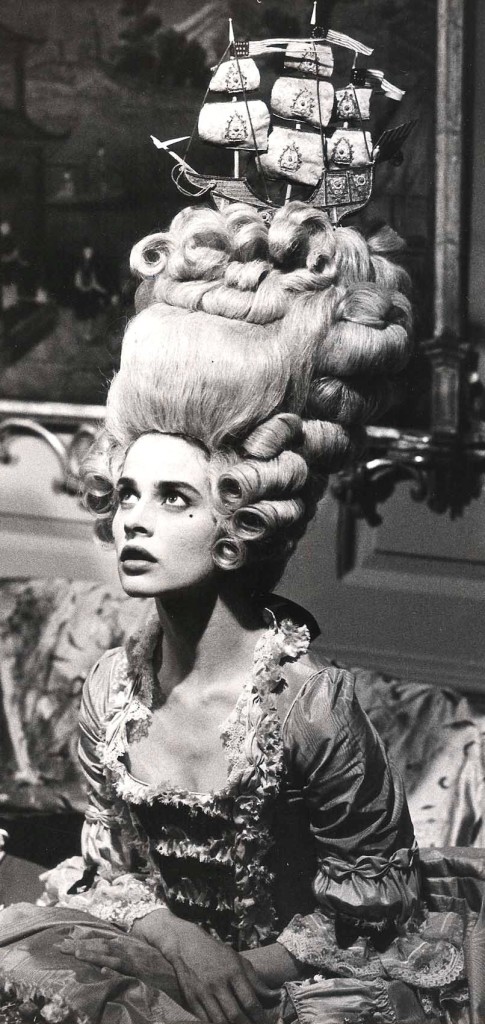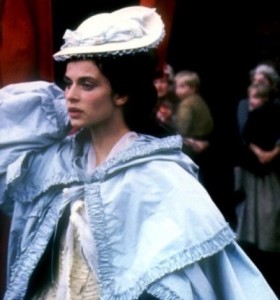Dir: Hugh Hudson
Star: Al Pacino, Dexter Fletcher, Nastassja Kinski, Donald Sutherland
It’s at this point that you begin to wonder if Kinski was cursed, this being the third film in her relatively short career, to have helped trigger the bankruptcy of a movie studio. Admittedly, this was not single-handedly responsible for the end of Goldcrest – Absolute Beginners and The Mission certainly played their part. But there are not many large-budget movies, which take in barely one percent of their budget at the North American box-office, as Revolution did. The fallout was not limited to the production house. Hudson, who had recently been Oscar nominated for Chariots of Fire, never made a major Hollywood film again; Pacino quit acting for four years; and Kinski headed back to Europe for the best part of the next decade.
So, is it that bad? No. Not that bad – though nor is it as good as certain revisionists would now assert. Not least among these is Hudson, who released a director’s cut a few years ago, featuring an additional voice-over by Pacino. I will confess, while I haven’t seen this, I am dubious of its supposed merits, simply because what we have here in the original film is still undeniably bad – in some quite large and spectacular ways. But it’s not as terrible as you might think, and I’d rather have something like this, which is at least making an effort, than the tedium of Harem or Maria’s Lovers. There are many things which Revolution is: bloated, incoherent and poorly thought-out would be among them. However, at least it’s never boring.
 It tells the story of trapper Tom Dobbs, who ends up unwillingly recruited into the American army, along with his son, Ned (Fletcher, as the teenage Ned; Sid Owen plays the younger version), after his boat is commandeered in New York harbour. Over the following years, as the rebellion blooms into a full-blown revolution, they cross paths in particular with two people. Daisy McConnahay (Kinski) is the firebrand daughter of an aristocratic family, who takes her new cause to heart with the passion of the young. And on the opposition side is Sgt. Maj. Peasy (Sutherland), a sadistic enforcer for the British cause, who flogs Ned to within an inch of his life, after he is forced to switch sides and become part of the redcoat forces.
It tells the story of trapper Tom Dobbs, who ends up unwillingly recruited into the American army, along with his son, Ned (Fletcher, as the teenage Ned; Sid Owen plays the younger version), after his boat is commandeered in New York harbour. Over the following years, as the rebellion blooms into a full-blown revolution, they cross paths in particular with two people. Daisy McConnahay (Kinski) is the firebrand daughter of an aristocratic family, who takes her new cause to heart with the passion of the young. And on the opposition side is Sgt. Maj. Peasy (Sutherland), a sadistic enforcer for the British cause, who flogs Ned to within an inch of his life, after he is forced to switch sides and become part of the redcoat forces.
Let’s get the good stuff out of the way first: truth be told, that won’t take long, because its main redeeming feature is that it looks good. Hudson, and cinematographer Bernard Lutic, used a lot of hand-held camerawork, which was well ahead of its time for the era, and is undeniably effective at plunging the viewer into the chaos of war. The period look is also excellent, with the East Anglian port of King’s Lynn dressed up to look like New York, and doing a very good job of it. It’s particularly impressive in one shot at the end, which follows Tom through the docks, as he tries to find Daisy in the seething swarm of humanity, and is epic in both scale and scope.
Now, on to everything else, and it’s more a question of “where to start?” It’s mostly a scripting issue, with scenes that seem to possess little or no connection, resulting in a near-complete absence of narrative flow. There’s also way too much reliance on happenstance, with Daisy and Tom coincidentally bumping into each other about every third scene, giving the impression the entire Revolutionary War took place in a single zip-code. That entire love story is never even slightly convincing, not least because Kinski is considerably closer in age to Fletcher (five years) than Pacino (two decades). Even Hudson tacitly acknowledges this: in the recut version, he cut back Kinski’s scenes, excising completely her character’s final reunion with Ned, which was apparently forced on him by the distributor. Sad though it is to say it, she’s basically superfluous to the entire movie, especially considering it’s over two hours long.
 There are also the accents used here. To her credit, Kinski is not the worst offender. Indeed, since her dialogue is clearly audible, she’s ahead of the curve, compared in particular to Pacino, who affects a mumbled approach, supposedly historically accurate, but which grates horribly on the modern viewer’s ears. It is, at least, consistent, which is more than can be said for Sutherland, whose accent appears to go on a nomadic tour, veering wildly from Yorkshire to Ireland and part in-between, apparently at random. The huge birthmark affixed to his face is a welcome distraction. Mind you, none of the British are portrayed as anything else than outrageous, braying caricatures: I’d be offended by the relentless stereotyping, if it wasn’t so utterly laughable in its excess. When you have the creator of The Rocky Horror Picture Show playing a suitor for the McConnahay girls’ hands, it’s clear you’re not trying very hard.
There are also the accents used here. To her credit, Kinski is not the worst offender. Indeed, since her dialogue is clearly audible, she’s ahead of the curve, compared in particular to Pacino, who affects a mumbled approach, supposedly historically accurate, but which grates horribly on the modern viewer’s ears. It is, at least, consistent, which is more than can be said for Sutherland, whose accent appears to go on a nomadic tour, veering wildly from Yorkshire to Ireland and part in-between, apparently at random. The huge birthmark affixed to his face is a welcome distraction. Mind you, none of the British are portrayed as anything else than outrageous, braying caricatures: I’d be offended by the relentless stereotyping, if it wasn’t so utterly laughable in its excess. When you have the creator of The Rocky Horror Picture Show playing a suitor for the McConnahay girls’ hands, it’s clear you’re not trying very hard.
The results certainly showed the audience was unimpressed, though Hudson has since complained the movie was rushed out, to try and resolve a sticky cash-flow situation for Goldcrest, the film having cost $28 million, which was very expensive at the time. The gambit didn’t work, to put it mildly. The take at the North American box-office – and one imagines it hardly did anything elsewhere – was a mere $358,574. That’s just 1.3% of its budget. As a yardstick, perhaps the biggest box-office bust of last year, 47 Ronin, returned about 20% of its budget in North America. Critics were no kinder, led by the New York Times’ Vincent Canby, who infamously described it as “England’s answer to Heaven’s Gate.”
The American Revolution has always seemed neglected by its native cinema, for reasons which I don’t quite get – it was a rather more successful exercise than, say, Vietnam. However, outside of this and the rather less historically accurate The Patriot – interestingly, also using a father-son relationship as the focus of its dramatic dynamic – there have been no large-scale attempts in the past half-century to capture the conflict. You can see what Hudson is trying to do here: bring a smaller, more personal focus to historical events, by showing their impact on a single man. It’s a laudable enough goal, and is not entirely dissimilar from his approach in Chariots of Fire. However, there’s a yawning chasm between good intentions and successful execution, and despite some positive aspects, this ends up stumbling into that chasm, far more than it soars over it.
